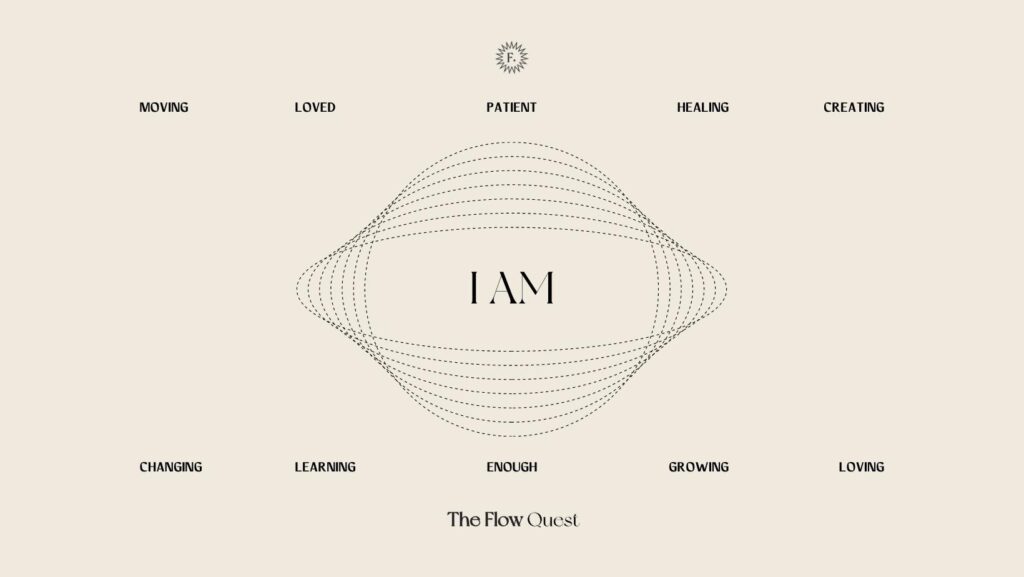Taking care of yourself sounds simple, but it’s not always as easy as it sounds. In our busy and fast-moving lives, our attention spans can be pulled in so many different directions between work, relationships and responsibilities. We often neglect ourselves while trying to keep up with it all and end up feeling burnt out physically, emotionally, mentally, socially, and spiritually. So, where does self care fit? Truth is, it doesn’t, unless you make time for it. When first starting a self-care journey, it can be easiest to prioritize self-care time when incorporated in conjunction with your daily routine. In this post, we will look at different types of self-care and provide actionable insights and ideas you can incorporate into your day-to-day routine from the moment you wake up to the moments before you sleep.
Consider each of these ideas as something amazing you can do for yourself rather than a checklist you need to complete in its entirety every day. You can reference this throughout your week to see what area of self-care you may need to focus on most and celebrate your progress.

There are 5 main areas of self-care to embrace:
- Physical
- Emotional
- Mental/Intellectual
- Social
- Spiritual
Physical Self-Care
Physical self-care refers to taking care of your physical body. You are actively practicing self-care when you prioritize healthy nutrition, frequent exercise, restful sleep, and good hygiene habits. Here are some different ideas of how to incorporate physical self-care into your day:
Morning:
- Start your day with drinking a glass of water.
- Do a morning workout to kick-start your day.
- Eat a nourishing breakfast and take vitamins to fuel up.
Throughout Your Day/Afternoon:
- Throughout your day aim to drink 6 glasses of water.
- Stretch your body and avoid being sedentary the whole day.
- Continue to fuel your body with nutritious meals.
Night:
- Go for a walk, practice light yoga or stretching to help you wind down.
- Wash your face and commit to following your bedtime physical care routine.
- End your night drinking a large glass of water before bed.
- Give yourself 7-8 hours of quality sleep and prioritize a consistent sleep schedule.
Emotional Self-Care
Emotional self-care refers to taking care of your emotional well-being. When you intentionally work on managing stress, practicing mindfulness, and aim for healthy emotional expression you are practicing self-care.
Here are some different ideas of how to incorporate emotional self-care into your day:
Morning:
- Fill your emotional cup by practicing self-love affirmations or listening to a motivating podcast. Begin your day setting a precedent of being kind to yourself.
- Write out, express and release any pent up emotions that you are feeling.
- Giving yourself permission to be wherever you are emotionally on that given day. Some days may feel good and productive. Other days you may feel more introspective. That’s ok!
Throughout Your Day/Afternoon:
- Practice self-compassion and enforce emotional boundaries that come up.
- Make time for emotional support if you need it. This can look like a phone-call with a friend, loved one or scheduling therapy with a mental health professional to help work through your emotions and experiences.
- Make time for something you genuinely love. Engaging in activities that you enjoy boosts your mood and reduces stress.
Night:
- Incorporate a night-time relaxation ritual like listening to healing music, reading, listening to an audio book or taking a warm bath to emotionally decompress.
- Reflect on your day and honour your needs/emotional bandwidth for the upcoming day.
Mental / Intellectual Self-Care
Mental self-care refers to stimulating your mind. You are actively practicing self-care when you engage in activities that foster personal growth and learning.
Morning:
- Keep your mind sharp and set a timer to read for 15-20 minutes in the morning. It may be nice to make yourself a cup of tea too. Let this become a ritual.
- Set daily realistic actionable goals that you can work to achieve daily. Creating a a to-do list and planning your schedule to stay organized is a great start.
Throughout Your Day/Afternoon:
- Keeping a notebook or journal to record thoughts and ideas that pop up throughout your day.
- Set boundaries to manage mental burn out so you can find joy and purpose in your work.
Night:
- Optimize your cognitive functions through learning a new skill. For example, you can try to challenge yourself to practice or learn a new language solo for 15 minutes a day.
- Declutter your space. Clean space. Clean mind.
- Reflect on your progress and past experiences to learn from them in a meaningful way.
Social Self-Care
Social self-care refers to maintaining healthy relationships with others and building a support network. You are actively practicing self-care when you prioritize daily connections with friends and family and build a network of people around you.
Here are some different ideas of how to incorporate social self-care into your day:
Morning:
- Connect with yourself first so you can connect with others during the day ahead. How are you feeling today?
- Text message, phone or have a meaningful in person exchange with someone you love first thing in the morning.
- Give yourself permission to be yourself and make a conscious effort to do so throughout the day.
Throughout Your Day/Afternoon:
- Communicate, actively listen and collaborate as intentionally as possible with others to help build and maintain healthy relationships.
- Avoid the use of social media to help you focus on building in-person connections and reduce feelings of isolation.
- Show up for yourself and for other people to the best of your ability.
Night:
- Make plans either in person or virtually to talk to someone you love – this is a small and great way to intentionally maintain a relationship.
- Honour your social battery and say no to social plans that you are not excited and fulfilled by. Give yourself that time back.
Spiritual Self-Care
Spiritual self-care refers to connecting with your inner self and your sense of purpose. You are actively practicing self-care when you practice things like prayer, acts of service, meditation, yoga and connecting to something larger than yourself.
Here are some different ideas of how to incorporate spiritual self-care into your day:
Morning:
- Start your day with journaling gratitude and stream of consciousness.
- Connect with nature and make an effort to get outside shortly after waking up.
- Incorporate a mindfulness meditation/ breathing exercise to reduce stress and anxiety at the very start of your day.
Throughout Your Day/Afternoon:
- Engage in acts of selflessness and service to others when the opportunities to do so present themselves. This could be as big as volunteering in your community and as personal as helping a loved one with something.
- Practice mindfulness by trying to focus on staying present in each present moment.
Night:
- You may find practicing a night-time mindfulness meditation/ breathing exercise may feel good to you again.
- Engage in an activity that brings you a sense of peace. Yoga and creative art are great options.
- Reflect on what you are grateful for at the end of your day as well.
- Take a moment to connect spiritually with the universe/higher power you may believe in.
By incorporating self-care into your daily routine, you can improve your physical, mental, emotional and spiritual well-being. When we prioritize taking care of ourselves, we feel more fulfilled. Remember, self-care is not selfish, it’s essential, so make sure to take care of yourself and prioritize self-care in your daily routine. You got this!
Self Care Affirmations
- I allow myself to take time to rest
- I show respect to my mind, body and soul
- I chose to give myself the love I deserve
- I am growing into the best version of me possible
- I wake up feeling empowered to live my best life
- I am healing more and more every day
Sources & Suggested Resources
- Ikigai: The Japanese Secret to a Long and Happy Life
- The 5 Minute Journal
- The 5 AM Club By Robin Sharma

































